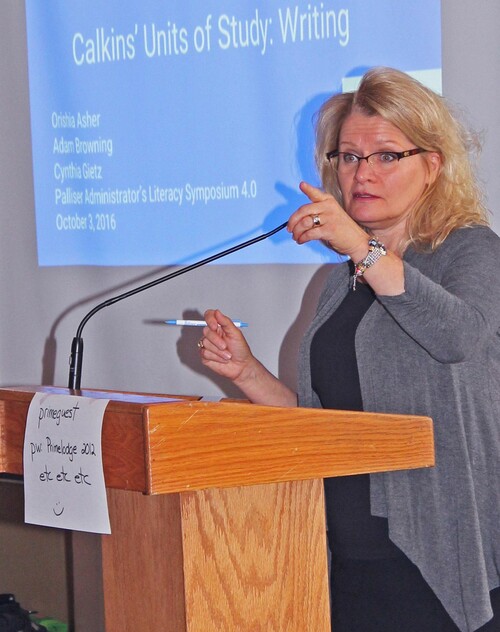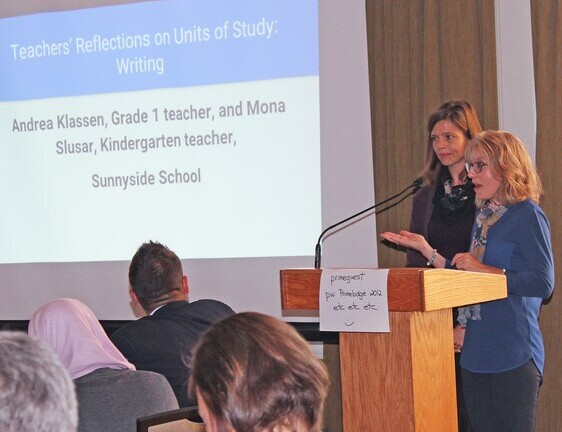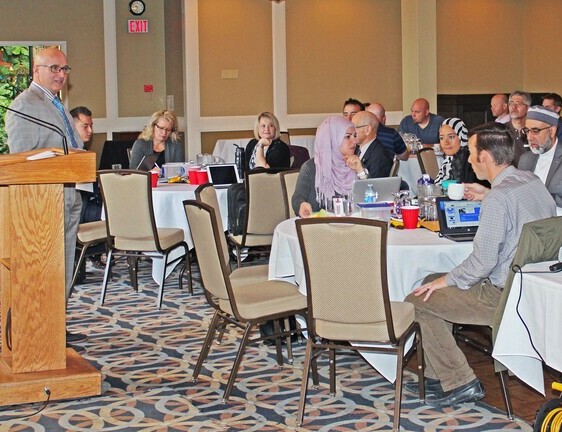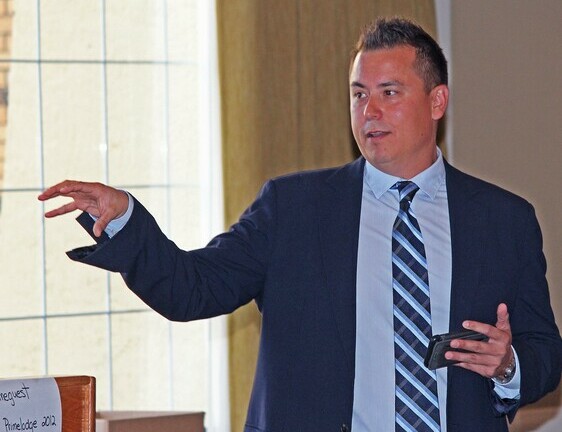
Over the past few years Palliser Regional Schools has made impressive headway towards its goal of making every student a life-long reader. Given that success, some might interpret a focus this year on writing an about-face.
Not so, Director of Learning Cynthia Gietz told school administrators recently at Palliser’s fourth annual “Together Leading in Literacy” symposium.
Shifting the emphasis for this particular professional development opportunity doesn’t mean teachers assume they’ve already learned all there is to know about reading, she said. Instead, it should be seen as a natural progression and neither skill is learned in isolation.
“How do you know how to read without knowing how to write? One depends on the other,” said Gietz.
Pat Rivard, Associate Superintendent Education Services, said the numbers bear witness to Palliser’s unwavering focus on literacy over the past few years. A group of Grade 1 students were assessed in 2013 with just over half of them reading at expected levels. Three-quarters of those students were reading at or above expectations assessment at the most recent evaluation and Palliser wants to see that number increase to 95 per cent of grade 3 students by 2019.
Orishia Asher, Palliser’s literacy specialist, recounted a conversation among a group of teachers about the successful - and consistent - approach taken with reading. They couldn’t say the same about writing.
“We have a vision about ‘everybody is a reader,’ but there was a gap in ‘everybody is a writer,’ ” she said during opening remarks at the two-day workshop. “It’s about creating a community of readers and writers.”
The symposium included an introduction to the Lucy Calkins’ Writer’s Workshop and an overview of some early success in Palliser schools which have recently introduced the process to staff and students. The key is providing teachers with specific and detailed instruction on how to teach students to write, said Asher.
“Knowing the process is like knowing a recipe,” she said. “Through rigorous and scaffolded instruction, students see themselves as writers and become risk-takers in their classroom ‘writing community.’ ”
Writer’s workshop requires the teacher to let go of the traditional control over their student’s writing, Asher said. Through explicit mini-lessons and one-on-one or small group conferencing, teachers act more as a facilitator and coach students to write for a variety of audiences and purposes through genre study.
While the actual process in very structured, the workshop is a major shift from traditional methods of teaching writing in which students are assigned a specific topic to write about.
“Allowing students choice in either their topic or style of writing motivates them to write and starts them on a path of becoming proficient writers,” Asher said.
Students become aware of the process of writing and learn that the process is as equally important as the product. That too is a shift from the traditional approach of putting more importance on the “polished” final piece, she said.
“It is important to remember that we are instructing the writer, not the writing,” noted the literacy specialist.
Staff shared their early experiences introducing the writer’s workshop process at Sunnyside School in Lethbridge County, and Jennie Emery Elementary School (JEES) in Coaldale.
Grade 1 teacher Andrea Klassen said her students at JEES are already proudly saying: “I’m a writer.”
“I feel so strongly about this that I can’t go back (to traditional writing instruction),” she said.
Change doesn’t come without some trepidation and Sunnyside kindergarten teacher Mona Slusar advised colleagues not to drag their heels until the perfect time comes to introduce the writer’s workshop.
“Don’t wait. Just jump in,” she said.
The Leadership in Literacy Symposium also included sessions on literacy data, book study discussions and time for principals and vice-principals to review and refine literacy action plans at their own school.





